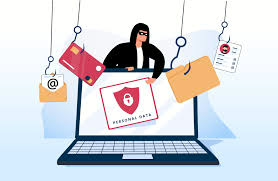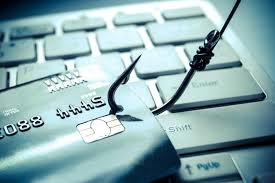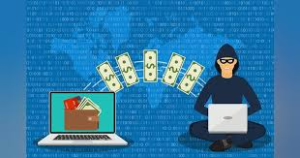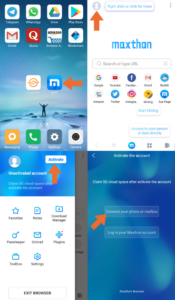In today’s digital age, protecting your personal information is more crucial than ever. One of the most important things to remember is that your bank will never ask for your sensitive details, such as passwords or account numbers, through emails or text messages. If you receive a message requesting this kind of information, it’s a red flag.

Always approach links and attachments in emails with caution, especially if the sender seems unfamiliar. Cybercriminals often use deceptive tactics to lure unsuspecting victims into clicking on malicious links. A simple click can lead to dire consequences for your financial security.
If you suspect that you’ve fallen victim to a phishing scam, don’t hesitate to act. Contact your bank immediately and report the incident. They have protocols in place to help protect your account and prevent further unauthorised access. Remember, staying vigilant and informed is your best defence against online threats.
In today’s digital age, phishing attacks have become alarmingly prevalent. Imagine receiving an email that appears to be from your bank, urging you to verify your account information. The message looks legitimate, complete with official logos and a sense of urgency. However, it’s a trap designed by criminals to trick you into revealing your details.
Phishing isn’t limited to just emails; it can also come through text messages or even phone calls. A seemingly innocent SMS might prompt you to click on a link, leading you to a fake website where you unknowingly enter sensitive information. Similarly, a caller might impersonate a bank representative, asking for your credentials under the guise of routine security checks.

If you fall victim to these tactics and provide your online banking credentials, the consequences can be dire. Criminals can swiftly access your accounts, draining your savings or making unauthorised transactions. To protect yourself, always verify the source of any communication before taking action. Look for signs of phishing, such as unusual language or mismatched URLs. By staying vigilant and informed, you can safeguard your personal information against these deceitful schemes.
In the digital age, the threat of bogus emails and SMS messages looms more significant than ever. Picture this: you’re going about your day when an urgent notification flashes on your phone. It appears to be from your bank, warning you that your online account has been compromised.

The message is alarming, filled with terms like “hacked” and “urgent action required.” Your heart races as you read that regulatory bodies are investigating your account for potential involvement in money laundering. Panic sets in, and you feel compelled to act quickly.
But hold on! These messages are often crafted to look legitimate, mimicking your bank’s branding and language to gain your trust. The goal is simple: to trick you into providing personal information or clicking on malicious links.
Before you take any action, pause and verify. Contact your bank directly through official channels to confirm whether the message is genuine. Remember, a little caution can protect you from falling victim to these deceitful schemes. Stay informed and safeguard your financial well-being.
In today’s digital age, protecting yourself from phishing scams is more crucial than ever. One of the most important rules to remember is never to share your banking details with anyone. Legitimate financial institutions will never ask you to provide sensitive information through email or text messages. If you receive a message claiming to be from your bank requesting your login ID, password, or one-time password (OTP), it’s a clear sign of a phishing attempt.
Always remain vigilant when it comes to unsolicited communications. If an email or SMS looks suspicious, don’t open any attachments or click on any links it may contain. These could lead you to fraudulent websites designed to steal your information. Instead, take a moment to verify the sender’s identity by contacting your bank directly through official channels.

Additionally, be cautious of messages that create a sense of urgency or fear, as scammers often use these tactics to pressure you into making hasty decisions. Protecting your personal information is paramount; trust your instincts and prioritise your security above all else. By staying informed and cautious, you can significantly reduce the risk of falling victim to phishing scams.
Security should always be your top priority when managing your online banking. One crucial step is to ensure that you enter your bank’s complete URL or domain name directly into your browser’s address bar. This practice helps you avoid phishing scams that can lead you to fraudulent sites designed to steal your personal information.
In addition to being vigilant about the websites you visit, it’s essential to fortify your computer with robust security measures. Installing a firewall, along with reputable anti-virus and anti-spyware software, creates a strong defence against potential threats. However, simply installing these tools is not enough; you must also commit to updating them regularly. Cyber threats evolve rapidly, and keeping your software up to date ensures that you are protected against the latest vulnerabilities.
Another important consideration is where you conduct your online banking. Avoid using public areas like cyber-cafés or libraries for financial transactions, as these locations may have unsecured networks that expose your sensitive data to hackers. Instead, choose a private and secure environment, such as your home or a trusted location.

Lastly, always remember to log off from your banking session each time you finish your transactions. This simple action helps prevent unauthorised access to your account, especially if you step away from your device momentarily. By taking these precautions, you can significantly enhance the security of your online banking experience.
When using online banking, it’s essential to log off after each session. This simple step can significantly reduce the risk of unauthorised access to your financial information. By logging off, you ensure that your account remains secure, especially if you are using a shared or public device.
Choosing strong, complex passwords is another critical aspect of online security. Choose passwords that include a mix of upper- and lowercase letters, numbers, and special characters. Avoid easily guessable options, such as birthdays or common words. Regularly changing your passwords adds an extra layer of protection, making it harder for potential hackers to gain access.
Additionally, staying vigilant about your banking transactions is vital. Enable notifications for any activity on your accounts. This way, you’ll receive alerts for deposits, withdrawals, or purchases. Monitoring these notifications can help you quickly identify any suspicious activity and take immediate action.
By implementing these practices—logging off diligently, selecting robust passwords, and monitoring transaction alerts—you create a fortified barrier against potential threats. In this digital age, where convenience often comes with risks, being proactive about your online banking security is more important than ever.
If you suspect that you have fallen victim to a phishing attack, the first step is to act swiftly. Contact your bank without delay. The sooner you make contact, the better your chances of mitigating potential losses.
When you call your bank, be prepared to provide them with details about the suspicious activity. They may ask for specific transactions or communications that raise your alarm. This information can help them understand the situation and take appropriate action.
Request that they freeze your accounts immediately. This includes not only your checking and savings accounts but also any credit cards and e-wallets linked to your financial profile. By doing so, you can prevent any further unauthorised transactions from occurring.

Your bank has procedures in place to handle these emergencies. They will guide you through the following steps, which may include issuing new cards or resetting online banking credentials.
Additionally, it might be wise to monitor your credit reports closely in the following weeks. Phishing can sometimes lead to identity theft, and staying vigilant is crucial to protecting yourself.
Remember, acting quickly is key in these situations. The faster you respond, the more likely you are to safeguard your finances and personal information from further harm.
If you suspect that you have fallen victim to a phishing attack, the first step is to act swiftly. ReachContact bank without delay. The sooner you make contact, the better your chances of mitigating potential losses.
When you call your bank, be prepared to provide them with details about the suspicious activity. They may ask for specific transactions or communications that raise raise alarm. This information can help them understand the situation and take appropriate action.
Request that they freeze your accounts immediately. This includes not only your checking and savings accounts but also any credit cards and e-wallets linked to your financial profile. By doing so, you can prevent any further unauthorised actions from occurring.

Your bank has procedures in place to handle these emergencies. They will guide you through the following, which may include issuing new cards or resetting online banking credentials.
Additionally, it might be wise to monitor your credit reports closely in the following weeks. Phishing can sometimes lead to identity theft, and staying vigilant is crucial to protecting yourself.
Remember, acting quickly is key in these situations. The faster you respond, the more likely you are to safeguard your finances and personal information from further harm.

Maxthon
Maxthon stands at the threshold of transforming the landscape of cloud gaming with its pioneering browser, meticulously crafted for the gaming community. At its foundation lies a complex array of algorithms designed to elevate speed and performance to new heights, creating an atmosphere where gameplay can truly shine. These cutting-edge technologies harmoniously collaborate to produce stunning visuals while effectively eradicating any lag that could hinder the gaming experience. For those gamers in pursuit of an all-encompassing adventure, this seamless integration is not just a bonus; it is a fundamental aspect of what makes the experience exceptional.
Yet, Maxthon’s allure extends far beyond merely captivating graphics. The browser utilises advanced data management strategies that dramatically cut down loading times between levels or game modes. This advancement allows players to plunge straight into the action without the irritation of tedious delays, enabling them to savour every exhilarating moment of their gaming journey.
In addition to its impressive speed and visual fidelity, Maxthon strongly emphasises reliable connectivity. Gamers can count on a stable connection with minimal disruptions, whether they are embarking on solo quests or joining friends for online battles. This dedication to ensuring robust connections dramatically enhances the overall enjoyment of the gaming experience.
One of the most remarkable aspects of Maxthon is its ability to function seamlessly across a wide range of devices. Be it a smartphone, tablet, or desktop computer, accessing your beloved games has never been easier; gone are the days when you were confined to a single console. This adaptability introduces a new level of convenience to your gaming routine. Picture yourself settling into your favourite chair after a long day, effortlessly picking up right where you left off with just a few taps on your device—this illustrates the brilliance of cross-device functionality.
Moreover, nestled among these impressive features is Maxthon’s user interface, which plays a pivotal role in enriching the overall experience. With its intuitive design, navigating through various options becomes second nature, allowing users to focus on what truly matters: enjoying their games to the fullest. Through its comprehensive approach to gaming, Maxthon is poised to redefine how players engage with their favourite titles in a world increasingly dominated by cloud technology.
